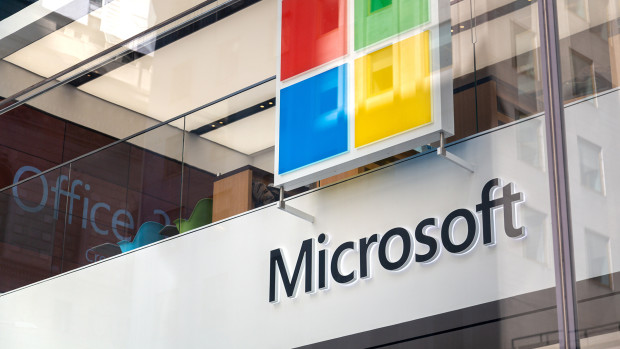
Microsoft (MSFT) -) posted stronger-than-expected fourth quarter earnings late Tuesday, with a modestly firmer growth rate for its flagship cloud division, as the tech giant looks to leverage its AI leadership into its coming fiscal year.
Shares moved lower in after-hours trading, however, after the group said spending accelerated by 37%, to $10.7 billion, over the quarter in order to meet surging demand for its AI-related products, with further capital expenditures planned for the coming financial year.
Microsoft said revenues for Azure, its flagship cloud division, rose 26% from last year over the three months ending in June, just ahead of the 25% Street forecast but slowing from earlier gains in the mid to high 40% range as companies continue to pull back on digital infrastructure spending.
Overall group revenues, however, rose 8.4% to $56.2 billion for Microsoft's fiscal fourth quarter, coming in well ahead of analysts' estimates of a $55.47 billion tally. Intelligent Cloud revenues were pegged at $24 billion, up 15% from the same period last year and just ahead of the Street's $23.8 billion forecast.
Microsoft's adjusted earnings rose 20.6% from last year to $2.69 per share, well ahead of the Street consensus forecast of $2.55 per share. Net income rose 20% to $20.1 billion.
“Organizations are asking not only how – but how fast – they can apply this next generation of AI to address the biggest opportunities and challenges they face – safely and responsibly,” said CEO Satya Nadella. “We remain focused on leading the new AI platform shift, helping customers use the Microsoft Cloud to get the most value out of their digital spend, and driving operating leverage.”
Microsoft shares were marked 3.7% lower in after-hours trading immediately following the earnings release to indicate a Wednesday opening bell price of $338.00 each.
“We delivered a solid close to the fiscal year driven by Microsoft Cloud quarterly revenue of $30.3 billion, up 21% (up 23% in constant currency) year-over-year,” said CFO Amy Hood.
Productivity and business division revenues, which includes Office 365, were up 10% from last year to $18.3 billion, Microsoft said, while more Personal Computing revenues, which includes Windows, were down 4% to $13.9 billion.
Microsoft, which spearheaded this year's AI frenzy with its $30 billion backing of OpenAI, the company behind the ChatGPT chatbot, will need to offset its slowing cloud growth with a robust AI forecast if the stock is to maintain both its year-to-date gain of 46.5% and its current price-to-earnings ratio of 37.3x, nearly twice the level pegged to the S&P 500, which is up 18% for the year.







